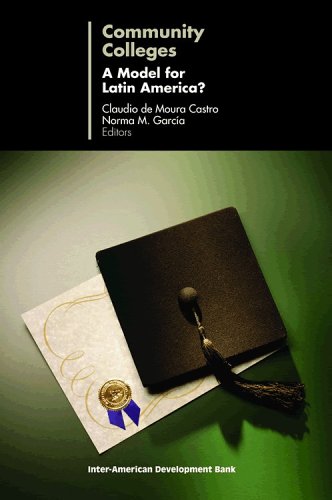Heralded as one of the great educational innovations of the 20th century, community colleges have played a crucial role in democratizing and expanding post-secondary education. In the United States and Europe, one- and two-year education and training programmes now absorb at least half of all high school graduates. This book explores how these institutions can help address the very challenges faced by post-secondary education in the region: an expanding and heterogeneous clientele, a lack of alternative social mobility options for people unable to attend traditional universities, and the need for more relevant curriculum that emphasizes knowledge and skills better attuned to the needs of the job market. The book aims to foster the development of effective community college models in Latin America by discussing the issues and obstacles from the North American experience in terms of financing, accreditation, prestige and a regulatory and incentive framework. Latin America is far behind Europe and the United States in developing diverse, quality programmes for its growing post-secondary population, which includes many people previously excluded from higher education.
Schools that offer one- and two-year programmes generally serve the least affluent and politically influential groups, so they often are short-changed in the allocation of funds. Yet, as demand for these programmes grows, educators and ministries are left grappling to find new teaching methods, identify new markets for graduates and better match students with real labour market demand. The community college model may be a source of inspiration for Latin America's efforts to reach out to this new educational clientele.
- ISBN10 1931003467
- ISBN13 9781931003469
- Publish Date 11 September 2003
- Publish Status Out of Stock
- Out of Print 14 September 2009
- Publish Country US
- Publisher Johns Hopkins University Press
- Imprint The Johns Hopkins University Press / The Inter-American Development Bank
- Format Paperback
- Pages 200
- Language English
